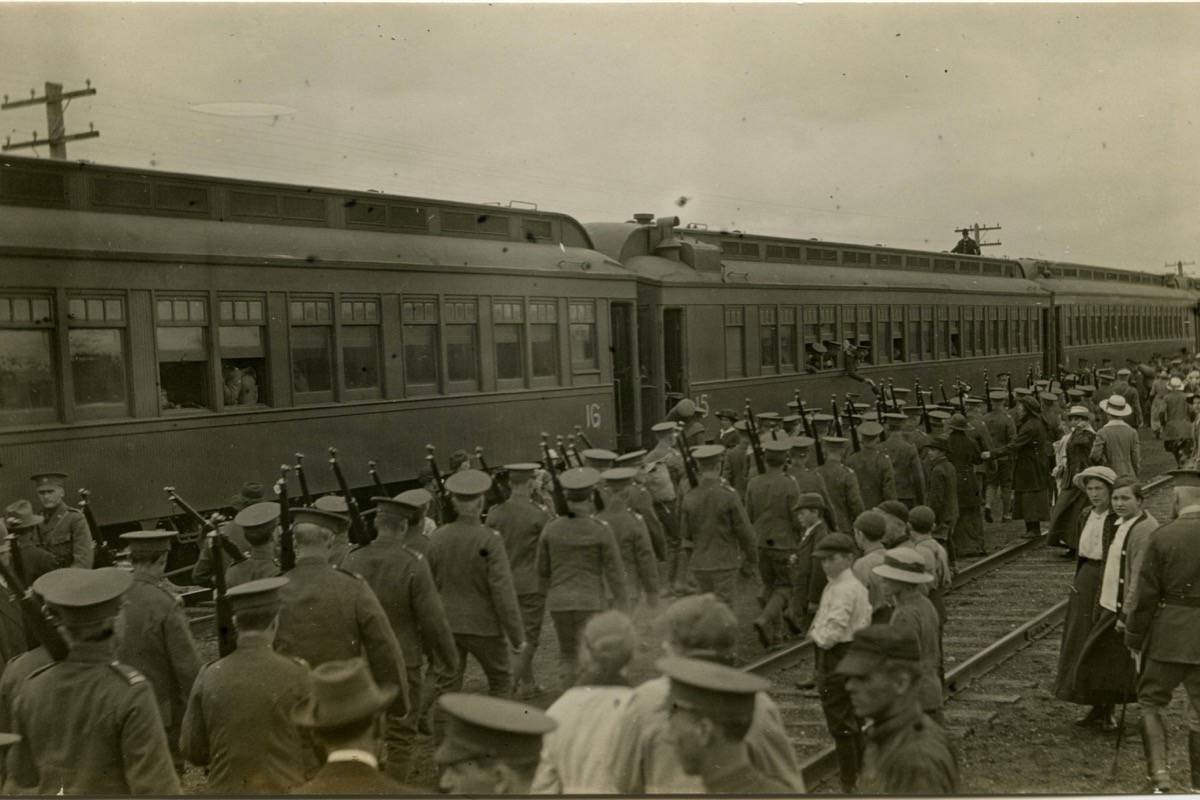One hundred years ago, in October/November 1917, the Canadian Corps was enmeshed in the horrific Battle of Passchendaele. While the Canadians ultimately won a victory at Passchendaele, it came at an enormous cost. There were 15,654 casualties including 20 young men from Central Alberta who were killed in action.
Moreover, Passchendaele was considered a victory only because the small Belgian village of that name was captured. In the larger context of the war, very little was actually accomplished. The front was only moved forward some 9.5 km (six miles). Nothing of true strategic importance was captured.
Sir Winston Churchill later summed up the battle as a, “Forlorn expenditure of valour and life without equal in futility.”
Passchendaele was the third of the Canadian victories in battle in 1917. The first was the Battle of Vimy Ridge in April. In that great assault, the Canadians managed to capture a highly strategic ridge on the edge of the broad plains of Northern France and Belgium.
Vimy Ridge earned the Canadians the reputation of being amongst the very best assault troops on the Western Front – soldiers with enormous fighting ability and courage. Hence, the Allied High Command increasingly turned to the Canadians to tackle incredibly difficult objectives.
The second Canadian victory came in August at Hill 70, the high ground above the French city of Lens. Again, Canadians demonstrated enormous courage and ability in battle. However, just as victory at Vimy Ridge came at a cost of 10,600 casualties, victory at Hill 70 cost the Canadians 9,200 casualties.
These losses were staggering for a small country such as Canada. Recruitment of new troops had already become a problem after the bloodbath of the Battle of the Somme in the summer and fall of 1916. By 1917, there was even a shortage of teenagers, older men and those previously deemed to be medically unfit for service.
The tremendous losses at Vimy Ridge, Hill 70 and now Passchendaele turned the situation into a full-fledged crisis. The Canadian government had already announced in May 1917 that compulsory military service (conscription) would have to be introduced.
Even with the strong public feeling the war must be won, if for no other reason than to justify the enormous losses and sacrifices already made, conscription became an explosive political issue.
Farmers wondered who would plant and harvest the crops if they and/or their remaining sons were forced to go off and fight in the war. Many other essential services faced severe labour shortages.
The Conservative Government of Sir Robert Borden went to extraordinary efforts to win support for conscription. Many opposition Liberal M.P.’s, including Dr. Michael Clark of Red Deer, were convinced to join a pro-conscription Unionist coalition. The franchise was extended to women, but initially only to those who had family already overseas and were therefore more likely to back conscription. Finally, farmers were promised that all those actively involved in food production would not be conscripted.
Despite, all the heated debate, in the election in December 1917, the Unionist Government and Dr. Clark were handily re-elected and their platform of conscription approved.
Nevertheless, the election provided proof of widespread opposition to conscription, primarily in the province of Quebec, but in other parts of the country as well. There were a number of polls in the federal constituency of Red Deer that voted for Dr. Clark’s non-Unionist Liberal opponent, William Puffer.
Conscription failed to provide enough new troops to fill the escalating shortages of front-line soldiers overseas. The promised exemption to farmers was soon broken. A bitter backlash quickly ensued.
In a provincial by-election in Red Deer in 1918, the Unionist candidate, F.W. Galbraith was so badly beaten by his Liberal opponent, J.J. Gaetz, that he lost his deposit. In the 1921 federal election, the Unionist government finished a poor third behind the Liberals and the new western-based Progressive Party. In Red Deer, Alfred Speakman of the Progressives won by a large margin.



